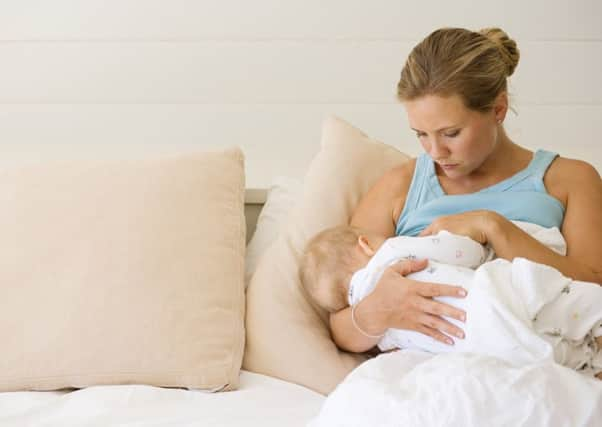New mothers missed out on baby bonding


Immediate skin-to-skin contact between mother and baby has “lasting benefits” for both, according to experts, including protecting babies from infection and encouraging them to breastfeed.
But 555 mothers who had their babies at the trust last year missed out on this important bonding time. In 2017-18, 2,530 mothers gave birth at the trust . The University Hospitals of Morecambe Bay recorded data for 2,320 mothers, excluding those who had premature babies born before 37 weeks - 24% did not have skin-to-skin contact with their babies within an hour of delivery.
Advertisement
Hide AdAdvertisement
Hide AdThe process involves putting the newborn baby on its mother’s bare chest and covering both with a warm blanket. This encourages the baby’s natural instinct to breastfeed.The first breastfeed is particularly important for babies because it contains colostrum, nicknamed “liquid gold”. Fran Bailey, a breastfeeding counsellor at parents’ charity the National Childbirth Trust, said: “Colostrum is like breast milk, but much thicker and creamier.
“We call it ‘baby’s first immunisation’, because it’s rammed full of antibodies. There’s only around 5ml of it, a tiny amount, but it’s really good for helping to protect babies’ tummies.”
At the University Hospitals of Morecambe Bay NHS Trust, 65% of babies had maternal or donor breast milk for their first feed, lower than the national average of 74%.
Data on the baby’s first feed was recorded for 2,055 newborns, including pre-term babies. In total, 2,560 babies were born at the trust last year.
Advertisement
Hide AdAdvertisement
Hide AdJane Scattergood, Midwifery Advisor at Public Health England, said: “Skin-to-skin contact directly after birth has lasting benefits for both mother and baby.
“It also supports breastfeeding, which helps give babies the best nutritional start in life.”
She added: “We know some mothers may need support and encouragement to help them start and continue with breastfeeding.
“That’s why we provide trusted advice to parents through our Start4Life campaign resources, and to midwives and health visitors through professional guidance.”